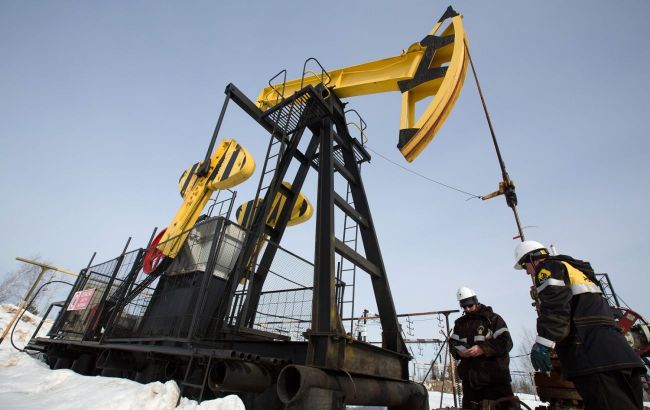Oil prices drop after Trump's repeated demand for OPEC to lower costs
 Photo: Oil prices fall after Trump's demands (Getty Images)
Photo: Oil prices fall after Trump's demands (Getty Images)
Oil prices have declined after US President Donald Trump called on OPEC to lower prices. The statement followed the announcement of large-scale measures to increase US oil and gas production during his first week in office, Reuters reports.
Futures for Brent crude oil fell by 0.7% to $78.0 per barrel. The price of US West Texas Intermediate (WTI) crude oil dropped by 0.7% to $74.15 per barrel.
Trump's statements
On January 24, Trump reiterated his call for the Organization of the Petroleum Exporting Countries (OPEC) to lower oil prices to hurt Russia's finances and help end the war against Ukraine.
"One way to stop it quickly is for OPEC to stop making so much money and drop the price of oil ... That war will stop right away," Trump said.
The US President also threatened to impose taxes, tariffs, and sanctions on Russia "and other participating countries" if an agreement to end Russia's war against Ukraine is not reached soon.
Vladimir Putin stated that he and Trump should meet to discuss the war and energy prices.
John Driscoll of Singapore-based consultancy JTD Energy said that oil markets are likely leaning slightly toward a downturn due to Trump's policies aimed at increasing US production, as he seeks to secure foreign markets for American crude oil.
"He's going to want to muscle into some of the OPEC market share so in that sense he's kind of a competitor," Driscoll said.
However, OPEC and its allies, including Russia, have yet to respond to Trump's call. OPEC+ delegates pointed to an existing plan to begin increasing oil production starting in April.
Market situation
Last week, Brent and WTI prices fell for the first time in five weeks amid eased concerns about sanctions on Russia potentially reducing supply.
Goldman Sachs analysts stated they do not expect a significant blow to Russian production, as higher freight rates have incentivized the availability of non-sanctioned vessels for transporting Russian oil, while an increased discount on the ESPO blend attracts price-sensitive buyers to continue purchasing it.
"As the ultimate goal of sanctions is to reduce Russian oil revenues, we assume that Western policymakers will prioritize maximizing discounts on Russian barrels over reducing Russian volumes," analysts noted in their report.
However, JP Morgan analysts believe that some risk premiums are justified, given that nearly 20% of the world's Aframax-class fleet is currently under sanctions.
"Using sanctions on Russia's energy sector as leverage in future negotiations could have unpredictable outcomes, suggesting that a zero risk premium is not appropriate," they added.
In addition, the US quickly backed away from plans to impose sanctions and tariffs on Colombia after the South American country agreed to accept deported migrants from the US, according to a White House statement released late Sunday.
The sanctions could have disrupted oil supplies, as Colombia sent about 41% of its seaborne crude exports to the U.S. last year, according to data from analytics firm Kpler.
Since the start of the war, Ukraine has been importing all its gasoline, making global oil prices the primary factor influencing fuel costs. In January, gasoline prices at Ukrainian gas stations rose as oil prices increased.

